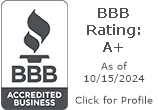Becoming a handyman contractor in Washington state involves several steps and specific requirements to ensure you operate legally and professionally. The Washington State Department of Labor & Industries (L&I) oversees contractor registration and licensing in the state. Here are the key steps and requirements to become a handyman contractor in Washington:
- Define Your Scope of Work: Before starting the process, it's important to understand the scope of work you intend to perform as a handyman. Handyman services typically include minor repairs, maintenance, and small projects, such as fixing leaky faucets, repairing drywall, or replacing light fixtures. It's essential to clarify the specific services you plan to offer.
- Business Registration: You'll need to establish a legal business entity in Washington if you haven't already done so. This can be a sole proprietorship, partnership, limited liability company (LLC), or corporation. You should register your business with the Washington Secretary of State and obtain a Unified Business Identifier (UBI) number.
- L&I Contractor Registration: In Washington, handyman contractors are generally required to register with the Washington State Department of Labor & Industries. This registration is distinct from obtaining a full contractor's license. It allows you to legally operate as a handyman contractor. The registration process may include providing information about your business, obtaining a UBI number, and paying the registration fee.
- Insurance: Washington has specific insurance requirements for handyman contractors, so you will need to carry general liability insurance and a license bond to work as a handyman. This insurance can help protect you in case accidents or property damage occur during your work. And the bond helps to protect your client.
- Local Permits: Depending on your location and the specific work you perform, you may need to obtain local permits or licenses. Be sure to check with your local city or county government to ensure compliance with their regulations.
- Educational Requirements: Washington doesn't have formal educational requirements for handyman contractors. However, it's crucial to have the knowledge and skills necessary to perform the tasks you offer as part of your handyman services.
- Customer Contracts: It's a good practice to create written contracts with your clients that outline the scope of work, pricing, timelines, and any warranties or guarantees.
- Tax Compliance: Ensure you are in compliance with Washington state tax requirements, including sales tax and business and occupation (B&O) tax.
It's important to note that the requirements for becoming a handyman contractor in Washington state are typically less stringent than those for other specialized contractors, such as electricians or plumbers. However, you must adhere to state and local regulations, provide quality services, and maintain any necessary insurance coverage to operate professionally and legally.
Additionally, it's advisable to regularly check with the Washington State Department of Labor & Industries and your local city or county government for any updates or changes to regulations, as requirements can evolve over time. Seeking legal and financial advice from professionals with expertise in the construction and contracting industry can also be helpful in navigating the regulatory landscape for handyman contractors in Washington.



